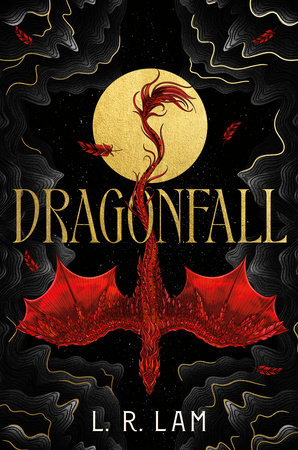When talking about magic, dragons, and fantasy at large, certain tropes and images may come to the front of your mind. Maybe there are gallant knights, blushing maidens, fire-breathing dragons, or powerful wizards wielding staffs. It’s not exactly a hot take to say there are a lot of great fantasy stories with these building blocks, and it wouldn’t serve us to say they can’t be used in creative and surprising ways.

For one thing, every single person in this world — called the Lumet — has magic, channeled through little stone pendants which also function as magical IDs. For another thing, the concept of a maiden would be pretty alien to them, as Lumet society is, as Linden A. Lewis says in a blurb on the back, “queernorm” and “challenges the roles of gender and sexuality.”
Basically, default pronouns in this world are “they” and a person may choose to use more specific ones — or keep “they” or use “any” — when they reach maturity. And for yet another thing, the dragons of this world have spent the last eight centuries locked in another realm called Vere Celene, which is slowly becoming uninhabitable. They are slowly rebuilding their power and plan to unleash a little good old-fashioned vengeance on humanity for their transgressions — they do still breathe fire though, don’t worry.
Now, let’s talk characters. There is, as one would expect, a dragon. Everen is the first male dragon born in three hundred years, prophesied to be a great Seer and lead his people back to Lumet. In the first chapter, he is magically dragged into Lumet and spends most of the book fighting the pain-inducing bond that forms between him and the human Arcady, whose spell was responsible for his displacement. Arcady — who uses any pronouns — has made a living as a thief since his parents died of the plague which left her hard of hearing and indelibly marked eight years previously. He is now scheming to regain their status in society and clear the name of her grandfather–the man blamed for starting the plague.
She is also unhappy to be unexpectedly bonded with Everen, as it destabilizes their magic just as he needs it most to pull the plan off. Rounding out the main three point-of-view characters is Sorin, raised from birth by the Order of Dragons and now secretly serving as High Priest Magnes’ assassin and spy. We meet her as she completes her first assignment and begins an ongoing crisis of conscience.
So far, so good. The characters are distinct and dynamic and interesting, their individual plots are engaging, and there is good payoff when they collide and intertwine. My reservation on this book comes from how dense the history and backstory is, and how the story sometimes takes a backseat to delivering the exposition. My sense is that there’s a lot of foundation-building to support the later books in the series, and I’m not one to complain about an author planning a series out thoroughly, but at times I was a little confused about what I should focus on. This was a particular issue in the first couple chapters, which made me feel out of sync with the characters just as I most wanted to see them clearly.
All in all, this is a really strong first book in a series. The stakes are high, the twists are fun, the dragons have feathers, there’s awesome queer representation, and deaf people and sign language are a normalized part of society, which is something I don’t think we see enough of in speculative fiction. I liked Lumet and its complex society, and I’m keen to see how Arcady, Everen, and Sorin go on to shape their world.
Sophie is the deputy fiction editor of MetaStellar, and sometimes write book reviews too. She has her MFA from Emerson College and spends her free time reading and writing science fiction and fantasy. Her work can be found on MetaStellar, PageTurner, and on her website: https://sophiegorjance.wordpress.com/

